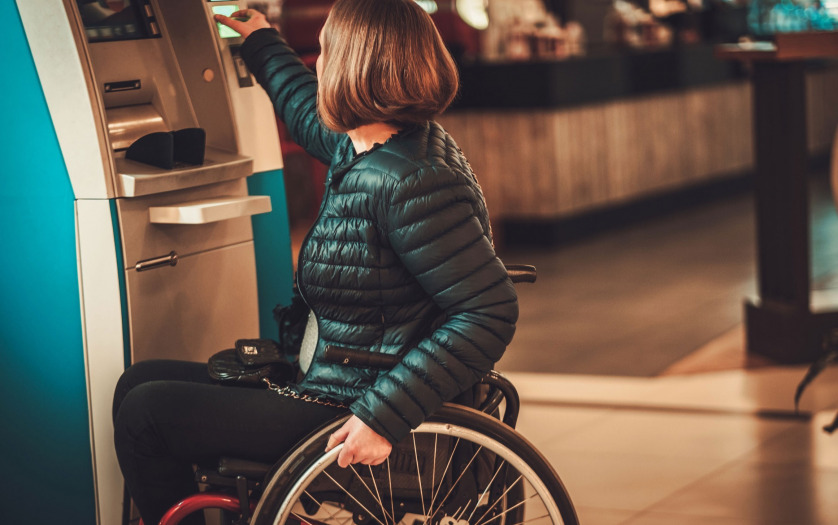Finance, persons with disabilities and the COVID-19 pandemic

The global COVID19 pandemic jeopardizes persons with disabilities in many ways, not only related to healthcare and measures directly associated with avoiding contagion, or the disease treatment if needed.
The global lockdown and its economic implications shall be considered as well, including measures to lessen the impact on the economy persons with disabilities, their families and their organizations.
Programs for funding for civil society organizations to support for employers to keep to jobs of persons with disabilities or self-employed persons with disabilities, should be included in national recovery plans after the lockdown ends.
Also, regular daily life activities, such as dealing with cash in a new reality where social distancing and avoiding the virus spread demands avoiding touching one another, surfaces, bills and coins.
Inclusive response programs must include support to persons with disabilities to overcome physical and institutional accessibility barriers. For the distribution of direct cash, physically accessible distribution points are chosen. For bank transfer delivery, inclusion requires opening a bank account or obtaining identification documents and to access the bank’s distribution points.All those cash delivery mechanisms should be accessible for persons with disabilities, now they also need to follow touchless strategies.
The delivery through mobile cash is the most accessible, as funds are directly transferred to recipients’ e-wallets without the need to physically access a cash distribution point, avoiding personal interaction as well.For mobile cash, mobile phones with accessibility features must be provided.
In spite of the challenges that lies ahead after the pandemic, this new reality shall recognize the advantages of strengthen digital accessibility for our future social interaction.







